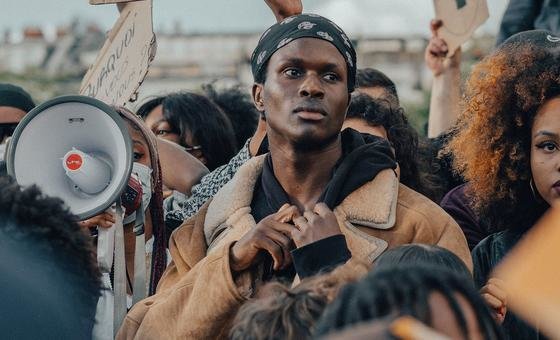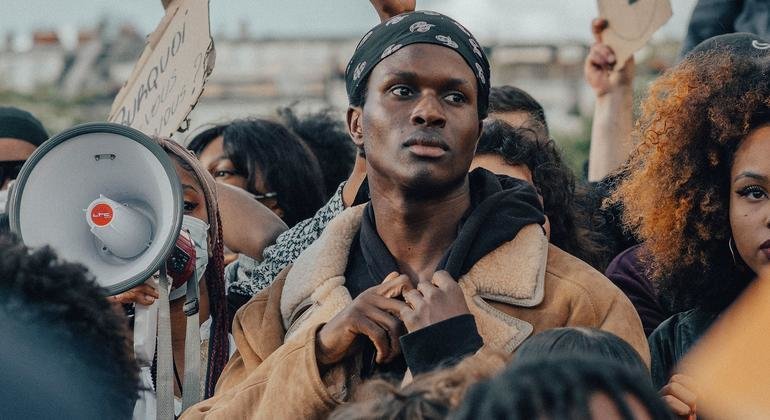
That’s the message from UN human rights chief Volker Türk, who called for strong leadership and political will from States to heed the call of people of African descent for accountability and redress.
His comments followed the release of a new UN report which sets out a series of concrete steps for governments to make reparations from former colonists, a reality.
The proposed measures, which must be guided by people of African descent themselves, include public apology, education and awareness raising, restitution and compensation.
Up to 30 million people were violently uprooted from Africa for enslavement over the course of four centuries. After slavery ended, policies such as segregation and apartheid perpetuated racial discrimination.
Mr. Türk stressed that reparatory justice was “not just about addressing the wrongful acts of the past” but also about building societies that are truly inclusive, equal and free from racism.
Libya: Derna a ‘sad snapshot’ of the state of our world: UN chief
The thousands of people killed, injured or displaced by the floods in Derna, Libya, were “victims many times over” of conflict and climate change, UN Secretary-General António Guterres told world leaders gathered at the UN in New York on Tuesday.
Derna is a “sad snapshot of the state of our world”, Mr. Guterres said at the UN General Assembly, as humanitarians in Libya continue to assess needs in the wake of the disaster.
“The situation on the ground is catastrophic. I have been a humanitarian worker for over 19 years and this is one of the worst disasters that I have witnessed. The level of destruction is unfathomable”, said UN refugee agency (UNHCR) Assistant Chief of Mission, Rana Ksaifi, speaking to reporters, from Benghazi:
He said an estimated 30,000 people have been displaced in Derna alone. Christopher Laker, the UN Development Programme (UNDP) Resident Representative in the country, said that 97 per cent of some neighbourhoods had been “washed away” as dams collapsed.
He highlighted the urgent need for maintenance of Libya’s water reservoirs and dams and said that UNDP teams would be supporting the authorities with infrastructure assessments.
Sudan: Children dying amid healthcare system collapse
In Sudan, more than 1,200 children under five have died in camps in the space of four months from a combination of measles and malnutrition, UN humanitarians said on Tuesday.
The children were refugees living in nine camps in Sudan’s White Nile state, according to UNCHR and the World Health Organization (WHO).
The refugee agency said that over 3,100 suspected measles cases and more than 500 suspected cholera cases were reported in the same period in the country, along with outbreaks of dengue and malaria.
Here’s UNHCR’s Chief of Public Health, Dr. Allen Maina:
“The situation has brought healthcare in the country to its knees, despite heroic efforts of local clinics and aid agencies to continue to provide much-needed health services.”
WHO said that 3.4 million children in the country were acutely malnourished, while up to 80 per cent of hospitals in conflict-affected states are out of action.
With the lack of access to treatment, the UN Children’s Fund (UNICEF) warned that “many thousands of newborns” may die in Sudan by the end of the year.
Meanwhile, the UN’s 2023 Sudan Humanitarian Response Plan launched in May remains only 30 per cent funded.



